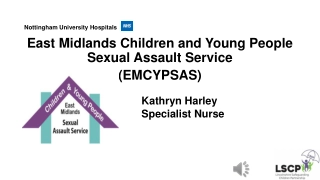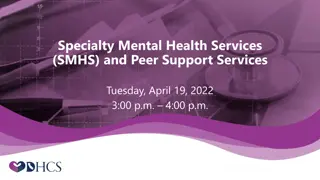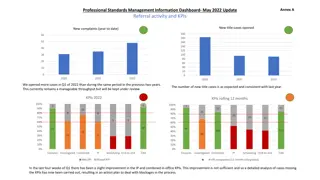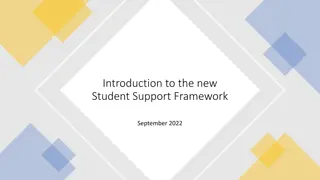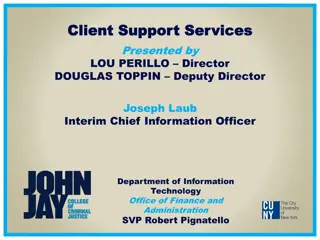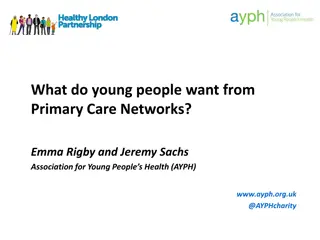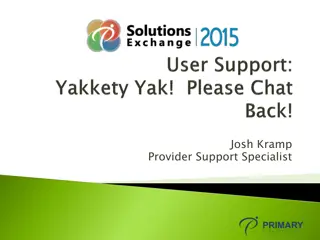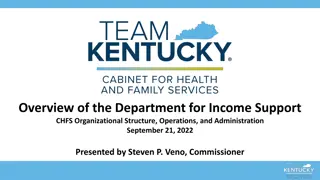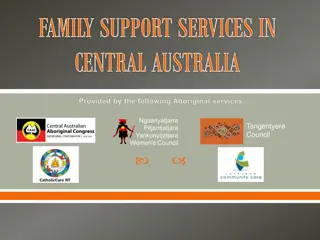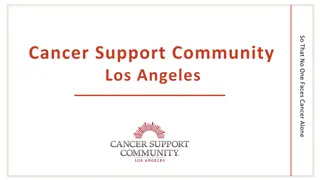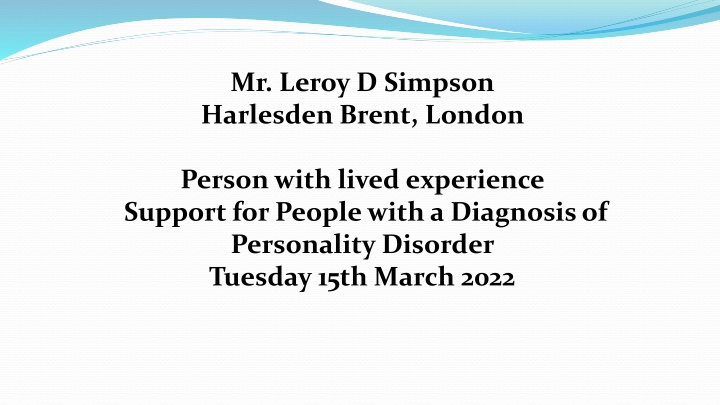
Personality Disorders and Support for Recovery
Explore the lived experience of Mr. Leroy D. Simpson, a person in London with severe depression and a personality disorder. Learn about NICE guidelines, treatment options, causes, and the importance of support for individuals with personality disorders. Discover the key role of personalized recovery paths and the significance of trust and honesty in building strong relationships during the recovery journey.
Uploaded on | 1 Views
Download Presentation

Please find below an Image/Link to download the presentation.
The content on the website is provided AS IS for your information and personal use only. It may not be sold, licensed, or shared on other websites without obtaining consent from the author. If you encounter any issues during the download, it is possible that the publisher has removed the file from their server.
You are allowed to download the files provided on this website for personal or commercial use, subject to the condition that they are used lawfully. All files are the property of their respective owners.
The content on the website is provided AS IS for your information and personal use only. It may not be sold, licensed, or shared on other websites without obtaining consent from the author.
E N D
Presentation Transcript
Mr. Leroy D Simpson Harlesden Brent, London Person with lived experience Support for People with a Diagnosis of Personality Disorder Tuesday 15th March 2022
I have been Homeless , Lived in a Hostel, Shared housing and now in my own flat. (General Needs) Service provider s were St Mungos and The Salvation Army Housing Association Key Worker and Housing Officer I been a member of both of these Association residents groups (Outside In and T4R) Ex Board Member of SAHA and RDA
Severe Depression, Personality Disorder with agoraphobic, paranoid psychotic features with Substance Misuse. Medication Olanzapine Diazepine Epilim 500 Volunteer for 12-16 Hours a week in a group setting
NICE Guidelines Coexisting severe mental illness and substance misuse: community health and social care services (NG58) Antisocial personality disorder: prevention and management (CG77) Borderline personality disorder: recognition and management (CG78)
www.nhs.uk/mental- health/conditions/personality-disorder/ Treatment for a personality disorder Symptoms of a personality disorder Therapeutic communities Medicine Recovery
Causes It is not clear exactly what causes personality disorders, but they are thought to result from a combination of the genes a person inherits and early environmental influences for example, a distressing childhood experience (such as abuse or neglect). Support for people living with a personality disorder. Having a personality disorder can have a big effect on the person's life, as well as their family and friends, but support is available.
Learning from lived experience: towards recovery Resident/Customer must be part of their Recovery Path Way and Goals settings at all stages Healthcare professional must always voice their concerns with the person at all stages Assessment dates/ stages to be set up asap but not written in stone, so if something isn t work other options can be looked at as early as possible Always check that the services our working together to provide the best outcome for the Customer on a regular basic Verbal feedback is better than no feedback at all A strong relationship must be put in place based on Trust Honesty and good conversation both ways
What does recovery mean to you? Ensuring people facing mental health challenges develop their own definition of recovery Means to me that I can recover as much as possible that good about me and learn to accept and manage what is weak or bad about me. Accept that this process is my best chance to transform my life. Healthcare professionals working by myside to reach my goals and improve the quality of my life.
Recovery & Person Centred Planning Substance Use Mental/ Physical Health Education Volunteering Employment Risks and Outcomes Leroy Housing Strengths/ Skills Exit Plan Dreams and Goals Support Network
Recovery & Person Centred Planning Substance Use Mental/ Physical Health Education Volunteering Employment Risks and Outcomes Client Housing Strengths/ Skills Exit Plan Dreams and Goals Support Network
Other Health Issues Eye Infection Feet Corns, etc. Teeth Leroy Rashes Constipation Blood Pressure Virus TB Eye Sight
Ensuring every person in services is involved in developing an outcomes-focused recovery path Its very important the person is leader of their recovery path and take ownership of it. Hard and Soft outcomes our rewarded the same way at all times in the process. This would ensure the person goes the full journey and produce positive outcomes for all involved.
Engaging with people to encourage continued contact with services This is a hard thing to do but can be the most rewarding part of this process when done well. I found agreeing how I kept in touch with my healthcare professionals, when and why was very useful. Putting aside a few minutes to discuss something outside my treatment also help me to bond with staff.
Recovery Values Recognise that people can and do recover from even the most severe personal traumas and distress Aim to support people to make their own recovery not make them dependent on services provided Recognise the strengths of clients assessing these alongside their needs Know that clients recovery will be faster if their individual ambitions are central to the services provided

